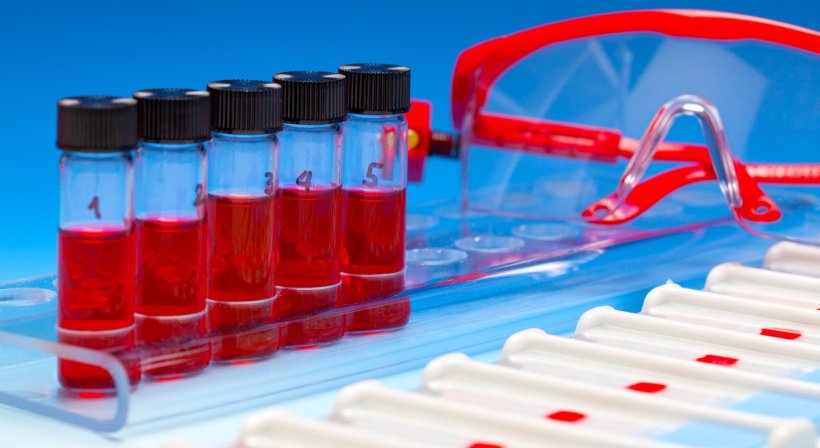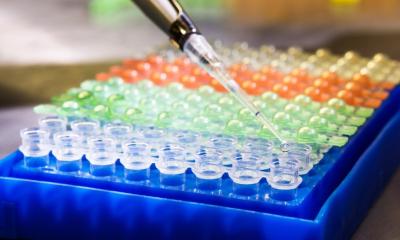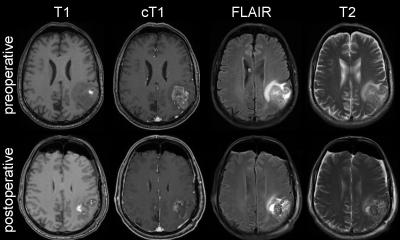
Image source: Adobe Stock/motorolka
News • Liquid biopsy for early detection of brain tumours
Glioblastoma: Mathematical modelling could lead to simple blood test
The development of a simple blood test for glioblastomas (GBMs) could mean earlier diagnosis and more effective and personalised treatment options against the most common type of malignant brain cancer.
Research led by the university of Bristol, published in the journal The Royal Society Interface, involved the development of mathematical models to assess the current use of biomarkers in the detection of GBMs and how such biomarker-based strategies can be improved. This research is part of a wider University of Bristol-led CRUK project to develop an affordable, point of care blood test to diagnose brain tumours. This cross-disciplinary project combines biomarker discovery, development of fluorescent nanoparticle and new testing techniques with computational modelling.
With further experimental data, it may also be possible to quantify tumour and patient heterogeneities and incorporate errors into our models and predictions for blood levels for different tumours
Johanna Blee
In this recent study mathematical models were developed and paired with experimental data. The researchers found that for the prospective GBM biomarker Glial fibrillary acidic protein (GFAP) lowering the current biomarker threshold could lead to earlier detection of GBMs. The team also used computational modelling to explore the impact of tumour characteristics and patient differences on detection and strategies for improvements.
Dr Johanna Blee, lead author and Research Associate in the University of Bristol’s Department of Engineering Mathematics, said: “Our findings provide the basis for further clinical data on the impact of lowering the current detection threshold for the known biomarker, GFAP, to allow earlier detection of GBMs using blood tests. With further experimental data, it may also be possible to quantify tumour and patient heterogeneities and incorporate errors into our models and predictions for blood levels for different tumours. We have also demonstrated how our models can be combined with other diagnostics such as scans to enhance clinical insight with a view to developing more personalised and effective treatments.
“These mathematical models could be used to examine and compare new biomarkers and tests for brain tumours as they emerge. We are hopeful this research will ultimately aid the development of a simple blood test for brain tumours, enabling earlier and more detailed diagnoses.”
Source: University of Bristol
04.08.2022





